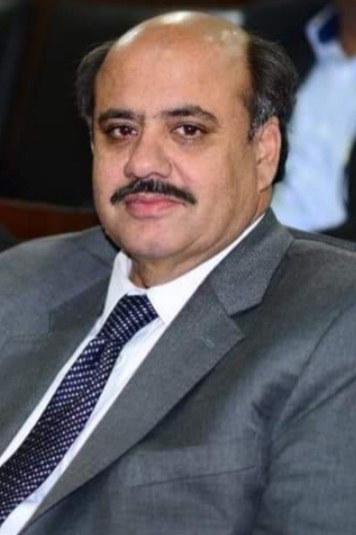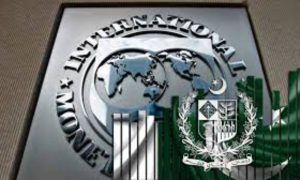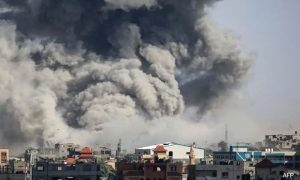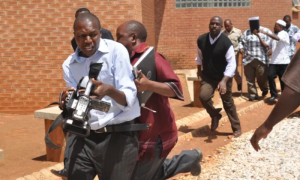Pakistan is in the midst of multidimensional terrorist attacks. The sequence and commonality of recent terrorist attacks in Balochistan and Khyber-Pakhtunkhwa reveal that the terrorist groups are home-grown, and they receive foreign material and financial support through Afghanistan. They have sanctuaries in Afghanistan. Therefore, on March 18, Pakistan Air Force precisely struck Tehreek-Taliban-Pakistan (TTP) hideouts at Birmal (Paktika province) and at Spera (Khowst province) in eastern Afghanistan.
Terrorist groups such as TTP, the Balochistan Liberation Army (BLA), and its affiliated Baloch militant groups have been acting as a proxy of India and other covert anti-Pakistan and anti-China forces. They have been targeting Pakistani law enforcement agencies, innocent people, and Chinese officials and workers working in Pakistan.
The suicide attack in the Bisham area of Shangla district in Khyber-Pakhtunkhwa (KP) on March 26, 2024, caused six deaths, including five Chinese engineers who were working on the Dasu Hydel Power Project. On March 20, eight armed fighters of the Majeed Brigade of the illegal Balochistan Liberation Army tried to enter the Gwadar Port Authority complex but were killed by security forces personnel. The killing of Chinese engineers and the attack on the Gawador Port Authority underlines the vulnerability of China-Pakistan Economic Corridor (CPEC) projects.
The CPEC is a harbinger of Pakistan’s economic development and sustainable prosperity. That’s why the Indians have been hatching conspiracies against the CPEC projects. The Indian ruling elite’s hysterical attitude towards CPEC is alarming. It has been endeavoring to create internal discord in Pakistan. The Indians know that once CPEC projects are implemented, they will change the face of Baluchistan, KPK, etc. Indeed, the people of Baluchistan and KPK would be the CPEC project’s greatest beneficiaries in the long term. Therefore, the Indian intelligence agency RAW crafted a network in Balochistan to obstruct the construction of CPEC infrastructure and support TTP and BLA to spoil the internal security of the country to hinder foreign investment in the country.
President Zardari and Prime Minister Shahbaz strongly condemned the heinous act and expressed solidarity with the Chinese people in their time of mourning. Both visited China’s Embassy in Islamabad to extend heartfelt condolences on behalf of the government and the people of Pakistan. They assured the Chinese Ambassador that the criminals involved in the gruesome act would be apprehended and brought to justice. Moreover, they promised that all necessary measures would be taken to ensure the security of the Chinese citizens working on various projects in Pakistan.
No group had claimed responsibility for the Bisham bombing. In the past, both Baloch militants and religiously inspired fighters targeted Chinese interests in the country. Nevertheless, the official statements testified to the involvement of China and Pakistan’s adversaries. For instance,
President Asif Ali Zardari stated the Bisham incident was “orchestrated by the enemies of Pakistan-China friendship.” Foreign Office also pointed out that “Pakistan and China are close friends and iron brothers. We have no doubt that the Bisham terror attack was orchestrated by the enemies of Pakistan-China friendship”.
The ISPR reported that “Strategic projects and sensitive sites vital for Pakistan’s economic progress and the well-being of its people are being targeted as a conscious effort to retard our progress and sow discord between Pakistan and its strategic allies and partners, most notably China.” It added, “Certain foreign elements are complicit in aiding and abetting terrorism in Pakistan, driven by their vested interests.”
The critical examination of the terrorist attacks in recent months reveals that the TTP might have conducted the suicidal attack targeting Chinese nationals at Bisham. However, Daesh’s Afghan branch, the Islamic State in Khorasan Province (IS-K)–a global terrorist group that has long been active in Afghanistan and the surrounding countries—involvement could not be ruled out. The Daesh was responsible for attacks in Pakistan’s Balochistan province. Notably, many IS-K fighters have come from TTP factions who took refuge in Afghanistan. While the Daesh has been fighting the Afghan Taliban, the group has coexisted with TTP factions in eastern Afghanistan and Pakistan.
Pakistan has launched counter-insurgency operations, expanded security infrastructure, and carried out fundamental reforms for two decades. Despite these initiatives, terror incidents increased roughly 43 percent in 2023 over the previous year. Hence, Islamabad needs to revisit its counterterrorism strategy to neutralize these terrorist groups. It needs to use both kinetic (military) and non-kinetic tactics to end the menace of terrorism in the country.
Besides, Islamabad has to engage China and other like-minded states in the diplomatic arena to obstruct foreign material and financial support to the terrorist groups operating in Pakistan. The encouraging development is that the UN Security Council urged all UN member states to actively cooperate with Pakistan and China in apprehending the perpetrators of the Bisham attack.
To conclude, China and Pakistan require increasing counterterrorism cooperation. Hence, a joint China-Pakistan counterterrorism strategy is needed to deal with the common threat. Besides, Islamabad needs to engage Iran and Russia to combat Daesh’s violent spree. A transnational terrorist syndicate requires transnational cooperation among regional states.























